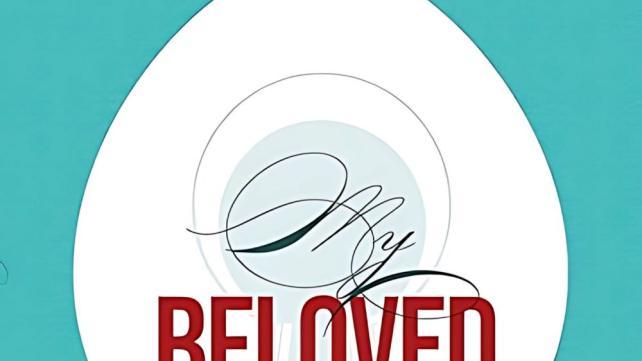
In Part 3 of My Beloved: a series of reflections on the Names and Attributes of Allah, Amaney Kazlak and fellow authors discuss “Heart Softeners” – real-life stories about compassion, mercy, patience, and tolerance.
In this third section of the book, the focus is on Allah’s names Al-Haleem, Al-’Aleem, Al-Jabbar, Al-Wakeel, Al-Mujeeb, Ar-Rahman, Ar-Raheem, At-Tawwab, Al-’Afuww, Al-Qawiyy, and Al-Mateen. As in previous chapters, the authors share stories from their own life that remind them of these names and attributes. At the end of each chapter, they challenge the readers to think deeply about how Allah’s attributes manifest in their own lives, and how they can begin to incorporate positive qualities in their daily habits.
In her essay “Moments of the Graceful,” contributor Weaam Ali discusses hilm, or forbearance, drawing from an experience in which she had a heated argument with her best friend. What could have turned into a bitter, lasting feud or even the breaking point of a long friendship was resolved differently, thanks to each woman’s forbearance. Ali stresses the importance of hilm, writing:
“The way we treat Allah’s (swt) creation reflects our relationship with Allah (swt). There may be times when we may have power over others, and there may be times when others will wrong us. The way we treat those whom we have power over and our response to those who have wronged us determines our character. Neither are we more powerful than Allah (swt) to mistreat others, nor are we sinless to be impatient with them and refuse forgiving them for their shortcomings.”1
In her reflections on Al-’Aleem, The Knower of the Unseen and the Hidden, Kazlak reminds us how no human will ever know us as intimately as our Creator. He knows every single detail of our past, present, and future. She writes:
“Over the years, I found great comfort in understanding that nothing happens in our daily life without Allah’s (swt) Knowledge. Fifty thousand years before the creation of the heavens and the earth, Al- ‘Aleem ordered the Pen to write where you are as you’re reading these words. He knows how much money you have in your pocket right now. Whether you’re sad, happy, anxious, or worried in this exact moment. And—get this—whatever your current situation is, is what’s best for you, right here, right now. Why? Because Allah (swt), Al-‘Aleem, chose your circumstances to be what they are since He knows you better than you know yourself—even though we don’t see it that way.”2
Because no one can compare to Allah’s knowledge and insight, Kazlak encourages us to turn to Him – not His creation – when we face difficulties.
Kazlak then writes about volunteering with Syrian refugees who faced daunting obstacles upon settling in the U.S. She writes about how Al-Jabbar, the Compeller and the Repairer, never forgets His servants, nor burdens them with more than they can bear.
In discussing Al-Wakeel, the Disposer of Affairs, Kazlak reminds us to accept disappointments, unexpected changes, or cancellations with a trusting, positive attitude, knowing that Allah always chooses the best plan for us in His wisdom and mercy. She points out that “random” encounters with people and “sudden turns of events” are actually all part of His plan. She encourages us to be aware of His guiding hand in our life and content with His decree, even when we are feeling frustrated with some unfulfilled wishes.
I really enjoyed Kazlak’s commentary on Al-Mujeeb, The Answerer of Prayers. Sometimes, she says, we think our hopes and duas are unreasonable or impossible. But for Allah, anything is possible. Kazlak writes:
“[When Allah says in the Quran] ‘Call upon Me; I will respond to you’ doesn’t have the stipulations of ‘if it makes sense’, or ‘if it’s reasonable’, or ‘if it is in line with your current circumstances’. Allah (swt) simply says ‘I will respond to you,’ understandably, so long as what we seek is pure and good; for He is Al-Mujeeb, The Answerer of Prayers. How could I doubt what I seek through dua, when Allah (swt) Himself says that He would respond? The Lord of the worlds and everything that is in it, does not need for our circumstances to be aligned so that He may grant you and I what we seek. Allah (swt) is very much ‘capable’ of answering our duas at the time of our asking, and exactly the way we want; but it is out of His infinite wisdom that He always grants us only that which is best for us at the right time and the right place.”3
Kazlak describes the intricate meanings of Allah’s names Ar-Rahman, the Entirely Merciful and Ar-Raheem, the Especially Merciful, reminding us that His incomparable mercy extends to every creation in the universe, every minute of every day. And while this is already amazing, He has saved ninety-nine percent of His mercy for Judgment Day, when we will all need it the most.
Kazlak provides helpful reminders of Allah’s forgiveness when she discusses At-Tawwab, the Acceptor of Repentance, and Al-Afuww, the Pardoner. She lists the key conditions for true repentance and reminds us that the doors for His forgiveness and mercy are always open.
For the names Al-Qawiyy, the Strong and Al-Mateen, the Unyielding in Strength, Kazlak reminds us that Allah’s strength is limitless, far greater than the strongest structures or sturdiest materials on earth. He wants us to be strong believers, as well, so we should work on our spiritual, mental, and physical strength.
Next week inshaAllah (God willing) I will discuss the fourth and final part of My Beloved. I have enjoyed incorporating this ebook and its lessons in my Ramadan routine.
End Notes
1 My Beloved: A series of reflections on the Names and Attributes of Allah in everyday life, Page 128
2 Page 136
3 Page 162
Laura El Alam is a freelance writer and editor and the author of the book Made From the Same Dough, as well as over 100 published articles. A wife and mother of five, Laura lives with her family in Massachusetts. You can visit her online at www.seaglasswritingandediting.com.






Add new comment